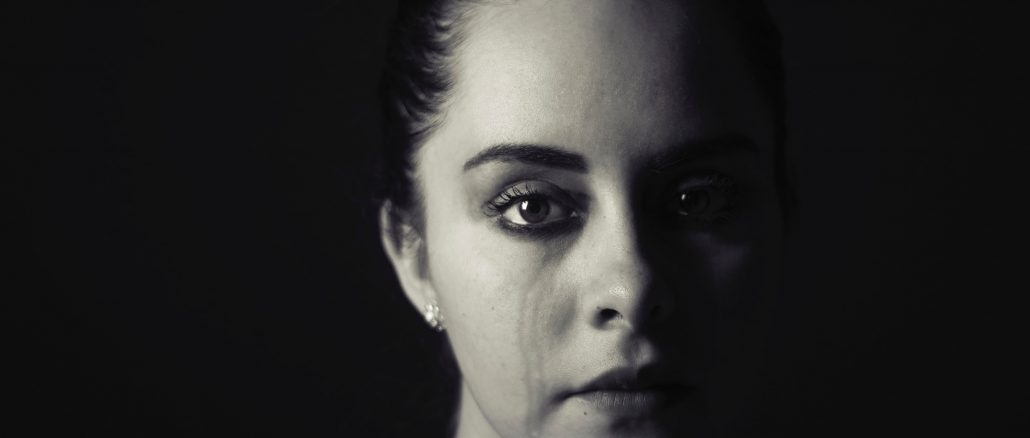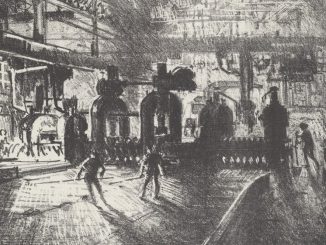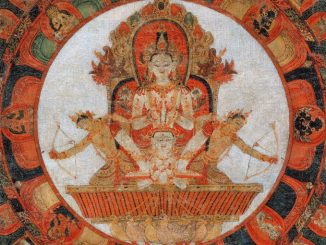
What keeps us from being authentic in our writing? Fear, shame, and ego, to name a few reasons, but authenticity can create connection and help readers recognize themselves in even the strangest of stories. To elevate your memoir beyond reminiscing you must bring your most authentic self to the page.
I looked at the clock at the back of the room. It was ten minutes to seven. The lecture room at the library was nearly full. I was unusually nervous. I had given talks before and I had done plenty of radio interviews and even a local TV spot. Why was I so nervous? More people were filing into the room, finding chairs and settling in. I didn’t want to be noticed so I leaned against the wall, acting like I was part of the library staff. The wall was covered with the portraits of past speakers. Some of them I even recognized: famous and award-winning writers. I could almost hear them sniggering, looking down their noses at me from their silver frames.
I should have been thrilled by this event. At that time, it was the largest audience I had spoken to, nearly a hundred people. A small table had been set up for selling copies of my book and a friend sat there waiting to take orders. She gave me a quick smile and I looked away afraid someone might see and realize that I was the intended speaker. At that moment, I wished I had never said yes to any of it. I checked my pulse (racing) and felt that both cheeks were flush and warm.
When I began marketing my first memoir, I found the experience deeply uncomfortable, which surprised me because I wasn’t shy and enjoyed being around others. I always had something to say and I was a pretty decent speaker. Sure, I had self-published my book, but the industry was going through a major revolution and self-publishing was hip and newly legitimate. My book had been edited and professionals had designed the cover. With the internet and retailers like Amazon I was able to access a huge audience. By all appearances I was a successful writer and speaker.
Before I was published, I thought I would feel proud of my work and be excited to share it. Instead, I felt awkward when asked about my book, the title, the subject matter, how many books I had sold, and all too soon there were raised eyebrows and uncomfortable clearing of throats. When someone asked what I did for a living, I found myself mumbling or avoiding the topic altogether. I dreaded each and every booked event. I was relieved when an interview was canceled, and by the time my quarterly royalty check arrived in the mail for $37.42 I thought why am I doing this?
A tap on the shoulder startled me. It was the director of the event.
“Would you like to sit on the stage or stand at the podium?” He pointed to an elevated stage designed to look like a living room, with a chair, rug, lamp and even a vase of fresh flowers on a side table. I thought of myself sitting there above the audience, reading from my book and taking questions like a celebrity, or stumbling over my words, forgetting what I wanted to say and looking ridiculous, high on my perch, where rotten vegetables could be aimed directly at me. The podium was positioned on the main floor in front of the seats, almost invisible until pointed out. The podium was something I could lean on, a wall to hide behind.
“Podium is fine.”
I shifted from one leg to the other and shook out my hands, like gymnast readying for the high bars. I decided that not preparing a speech had been my first mistake. As a rule, I didn’t prepare a written talk. I talked about my life, who needed notes for that? The material was always with me. But I felt as empty as a crushed soda can.
“You’re up in three minutes,” the director reminded me, “and you will have the floor for an hour. I will signal you when you are getting close to the hour mark to remind you to wrap it up.”
At that moment the director headed toward the podium to announce me. I was sure my knees were going to buckle. Suddenly there was clapping, and I realized I was up. I walked to the podium and placed a copy of my book there—a post-it marked the spot I had selected to read. I looked at the audience. Then something totally unexpected happened, something that had never happened to me before.
I started to cry.
Not a graceful tear at the corner of each eye, but red-face, lump-in-throat, nose-running kind of cry. This was a blunder no one recovers from. I wanted to run out of the room. Instead I stood there, sniffling and gathering my composure. I had no idea what I was going to say or how I was going to move forward. But the longer I stayed in the uncomfortable moment, the clearer my mind became.
“You are all probably wondering why I am crying,” I finally said when my voice returned. There were visible signs of relief as audience members relaxed and even a few audible exhalations. “Let me tell you.”
It probably took me longer than most children to learn that I was different. My mother was always yanking me back away from strangers by my collar. “Don’t talk to them,” she would hiss. But I couldn’t help myself, the world was a big, wonderful place and I wanted to touch and smell and taste it all. I wanted to be fully immersed. By the time I was six or seven she refused to take me to the gas station or the grocery store with her anymore. I was called a blabbermouth. When Father had taken us all camping one year when I was six, I had made my way around to the other camp sites, talking and pointing to each one of my mothers and naming them, offering details about my many brothers and sisters. I didn’t understand why I couldn’t share my life with every person I met.
“Do you want Father to go to jail?” Mother had asked me, leaning into my face and squeezing my arm extra tight. I thought she was angry with me for leaving the campground, but I saw only fear in her eyes. “They will call the police, we will go to jail, and you kids will be sent to a foster home. You CANNOT talk about our family to anyone, do you hear me?”
I nodded and looked around at the other campers. The friendly faces became enemies, and the kind invitations for a can of soda pop or a roasted marshmallow took on a sinister quality. Were they really out to get me? Did they really want to tear my family apart? Mother’s fear was enough to keep me quiet. But I never lost the desire to connect with the wider world. I wanted the mailman to know my name, I wanted to smile at my neighbors and play with their dog. I wanted all the cashiers at the 7-Eleven on the corner of our street to know me by name. But our family was breaking the law simply by existing and with one whisper of the truth my world could be destroyed. The abuses in our home were twisted up with religion, polygamy, and Father going to jail, so I kept those secrets, too. I learned to hold back, to angle the truth so that the light of it was deflected away from me. The truth was dangerous. While I never really adopted the belief that outsiders were bad, I didn’t need to. All required to keep me silent was the rejection I faced when I went out into the street. As a teenager I was met with derision, my clothes and hair, set me apart. We were polygs, as they called us. I was spit on, yelled at, mocked, cursed, and even had literal rocks thrown at me. I learned to pretend. I acted proud of my braids and old-fashioned clothes. I held my head high. But inside I was withering. I called them names, too. Gentiles, evil spirits, wicked, devil worshippers. I would always be a stranger, an alien to the world of people that surrounded me. It was my privilege to be an outcast. That is what I was taught and that is what I believed. But it hurt to believe that.
When I left the polygamous culture, I was shocked to discover that jeans and a t-shirt did not make me feel like I belonged. Cutting my hair, wearing make-up, and piercing my ears only created an internal conflict where the outside of me did not match the inside. Inside I was still a polyg, or an ex-polyg, which only made me feel more distant and un-relatable. Everything I did to fit in, only served to emphasize my differences. I had begun to think that I would always be weird, and I resigned to feeling alone and disconnected, like an outdated phone that has no socket, no place to plug in and be connected. I was a useless relic.
Then I began writing. It was through writing that I was able to break down the walls my parents had so carefully constructed. I scraped out the mortar between the stones that had held so much together and disassembled it piece by piece. The wall was not erected to keep the world out; it was built to keep me in. But I brought the wall down. And out of the ruins I stood, in front of an audience of strangers who could hear me. The line was connected. I could feel it vibrating, like a warm pulse, an electric current, the faint sound of a human voice echoing across the universe. A circle. Infinity. Unbreakable. All those faces in the room were transformed into the strangers I had snubbed, the ones I judged and ignored; strangers, who might have expanded my world, touched my mind and heart. How could I not cry? All I could do was stand in my own skin, to own the truth of that moment. To share it.
I’m not sure why I was so afraid that day. I had been trying to fit in, to be legitimate, a real writer, a person worthy to stand at a podium. I had been trying to erect another wall to keep me safe. Maybe it was just the leftover fear that was instilled in me so many years before, the last stone to fall, leaving me without any protection, the truth burning my eyes. Maybe I was afraid to see, that what scared me and what I deeply longed for was actually the same thing.
The next day I met one of the members of the audience: an older woman who had lived in that area for many years and was a regular at the library readings. She had discovered where I was staying and came to see me.
“I just wanted to tell you that I have never heard someone speak from their soul like you did yesterday. It was so unexpected. We host a lot of high-profile writers and I have never felt that kind of electricity before. The connection was amazing. Everyone in the room seemed to feel it. It was wonderful. I just wanted to share that with you personally.”
Authenticity is raw, unfiltered truth and it is the only thing that matters when it comes to personal stories. Without it, memoir is just anecdote, a story that entertains at a dinner party but no more. Learning to stand in the fire of that truth is what memoirists must learn to do because without it there is no connection. Our readers deserve that and so do we.
SUSANNA BARLOW is a full-time writer. Her memoir Not in My House is about her life in a polygamous family and how she overcame the struggle of surviving abuse. It won First Place for Creative Nonfiction in the Utah Original Writing Competition 2017. An excerpt of her book was published in Artists of Utah 15 Bytes in 2018. She enjoys helping other writers with one-on-one writing guidance and as a developmental editor.
Twitter: @susanna_barlow
Featured image: Photograph by Cristian Newman on Unsplash.



